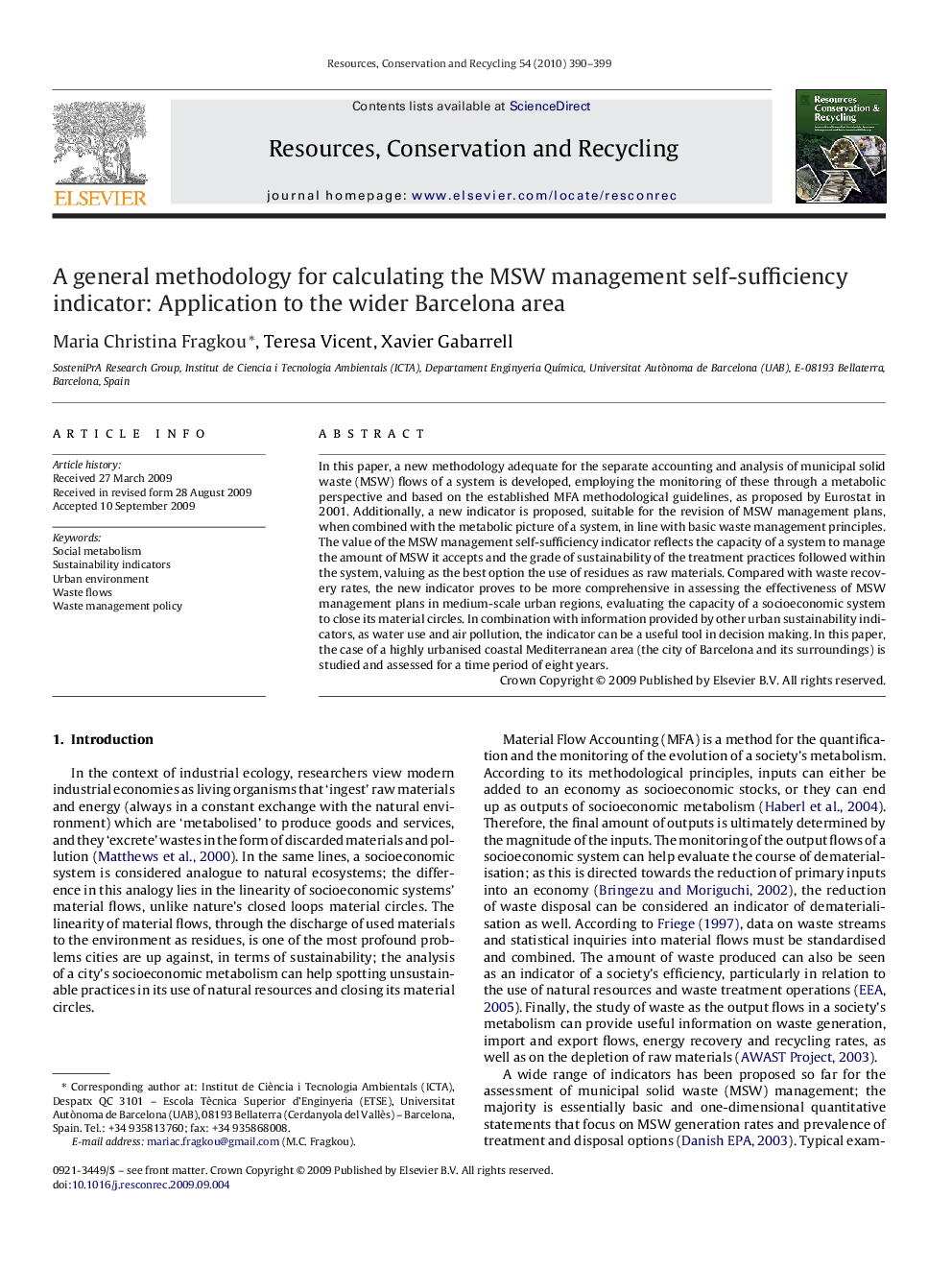| Article ID | Journal | Published Year | Pages | File Type |
|---|---|---|---|---|
| 1063748 | Resources, Conservation and Recycling | 2010 | 10 Pages |
In this paper, a new methodology adequate for the separate accounting and analysis of municipal solid waste (MSW) flows of a system is developed, employing the monitoring of these through a metabolic perspective and based on the established MFA methodological guidelines, as proposed by Eurostat in 2001. Additionally, a new indicator is proposed, suitable for the revision of MSW management plans, when combined with the metabolic picture of a system, in line with basic waste management principles. The value of the MSW management self-sufficiency indicator reflects the capacity of a system to manage the amount of MSW it accepts and the grade of sustainability of the treatment practices followed within the system, valuing as the best option the use of residues as raw materials. Compared with waste recovery rates, the new indicator proves to be more comprehensive in assessing the effectiveness of MSW management plans in medium-scale urban regions, evaluating the capacity of a socioeconomic system to close its material circles. In combination with information provided by other urban sustainability indicators, as water use and air pollution, the indicator can be a useful tool in decision making. In this paper, the case of a highly urbanised coastal Mediterranean area (the city of Barcelona and its surroundings) is studied and assessed for a time period of eight years.
